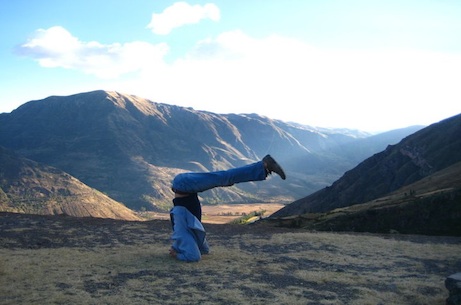
Ian Hsu is embarking on an MPhil in social anthropological analysis studying how patients experience their illness.
How do patients’ experiences of their illness affect how they respond to treatment? How do they make sense of life-altering conditions like cancer?Ian Hsubelieves it is vital for doctors to understand the way patients respond to illness in order to improve their experience of it.
A trainee medic, his interest in medical anthropology stems in part from a stint wheeling a book carts to patients at his local hospital. The patients would open up to him and talk about their lives and illnesses.
“It was a good starting point for conversations and for building relationships with the patients,” he says. “It was a real privelege and patients would open up about their lives and illnesses. It was this experience that showed me how important the whole person and their history is in how they respond to health interventions.”
He is just embarking on an MPhil in social anthropological analysis at the University of Cambridge. He will be studying illness experience, how particular individuals in a particular social and cultural context navigate and find meaning. “I am interested in understanding how individuals make sense of life-altering illnesses like cancer. I think doctors are morally obligated to understand how their patients negotiate that and to make sure their experience in hospitals is as good as possible,” he says.
Ian has had his own challenges at understanding different social contexts. He was born in Michigan and lived there until he was 10. Both his parents, who emigrated from China, worked for the auto industry, but for different companies. When he was 10 Ian’s family moved to Germany because his father’s company merged with Mercedes. However, his mother worked for General Motors and had to remain mainly in the US.
Moving to a different country and culture with a language he had no knowledge of just as he was about to hit adolescence and having to spent most of the year with only one parent was not easy. Ian went to an international school where all classes were in English which eased the transition a little, but for a boy who was relatively shy it was hard to make friends. He also had no idea how long the family would be there which made it difficult to settle down. Academically he did well, but his main priority at the time was fitting in socially.
After a couple of years in Germany the family moved to China, this time because his mother’s job had transferred there. Culturally, this was not as much of a transition as the move to Germany, but it was still a challenge socially. After a year the family returned to Michigan and Ian went to high school there.
Ian’s family was fairly scientific and he too leaned in the direction of maths and science at school.
Engineering
After high school, he was accepted to study at the engineering school at the University of Michigan. In his first year he was planning to study biomedical engineering, but halfway through the year he switched his focus to neuroscience. He says he was always fascinated by people like autistic savants who could do amazing things with their minds when he was growing up.
Over the next four years he was drawn more and more to psychology and to people’s lives and stories. He did a writing course and took a job as a writing tutor. “It was an amazing opportunity to meeting every sort of person in the university,” he says. He also took the local hospital job taking books round the wards and asking people what they wanted to read.
After graduating, Ian considered going into the Teach for America programme, but with a minimum two year commitment required, he opted instead to enrol straight into Johns Hopkins medical school. His course is four years long and he has completed most of it.
He combined straight medical training with classes in medical anthropology which gave him a greater appreciation of the cultural determinants of health.
After completing his MPhil, Ian hopes to return to medical school and to specialise in psychiatry. One of the areas he is particularly interested in understanding is the phenomenon of stigma in mental illness and how this impacts on their treatment or stops them seeking treatment in the first place.












